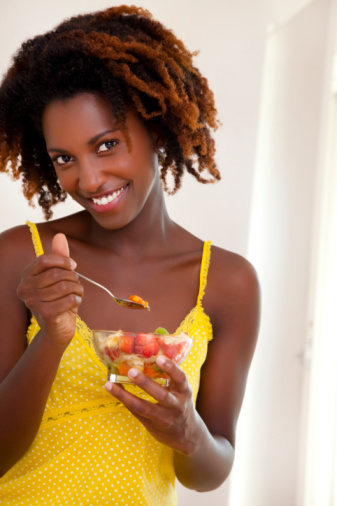 With copious notes and copies of VegNews and PETA Vegetarian Starter Kits, I entered in the room prepared to give my lecture on vegan living. I was very excited about the opportunity to speak to women of color who had survived domestic violence. I reached out to this transitional shelter about coming to speak to the ladies about the alternative ways of eating with a focus on veganism. I wasn’t quite sure how I would be received, as the ladies were unaware about the focus of this particular health class. However, I was prepared for any resistance that could possibly come my way.
With copious notes and copies of VegNews and PETA Vegetarian Starter Kits, I entered in the room prepared to give my lecture on vegan living. I was very excited about the opportunity to speak to women of color who had survived domestic violence. I reached out to this transitional shelter about coming to speak to the ladies about the alternative ways of eating with a focus on veganism. I wasn’t quite sure how I would be received, as the ladies were unaware about the focus of this particular health class. However, I was prepared for any resistance that could possibly come my way.
I must say that I was pleasantly surprised that I was not met with stares as if I was wearing celery stalks growing out of my nose. Instead, I was met with a mix of intrigue and excitement. Their curiosity was piqued and I was pleased. None of the ladies resembled the usual picture of veganism, but they wanted to know how they could do it and I was there to help be their guide.
I stumbled upon vegetarianism back in 2001 and fought my way through my cheese addiction to become a full vegan in 2006 and have never looked back. It is definitely one of the best decisions I’ve made in my adult life. By embracing the vegan lifestyle, I did have to accept all of the judgment and questions that often come along with it. I had to be comfortable and confident in my choice and be ready to defend this eating lifestyle among family, friends, co-workers, and even strangers.
I must say that it still does baffle me that a plant-based diet is strange to some, but eating processed meat that is treated with ammonium hydroxide is normal. However, I do believe that a vegan diet is gaining momentum within the African-American community, but we have a long way to go. We still do not see Whole Foods and Trader Joe’s in certain parts of town and the quality of produce available at most conventional grocery stores leaves much to be desired and organic choices oftentimes are not even part of the equation.
What I work to do is remove the stigma associated with veganism and promote it as a satisfying eating choice among people of color. I started with my family and make it a point to prepare healthful and delicious vegan meals whenever I go home for a visit. I believe that vegan food is often thought of as boring and lacking flavor and that could not be further from the truth. Unfortunately, many of our food traditions are heavily laden with fat, salt, grease, and white sugar. What good are collard greens without the flavoring of a ham-hock? Plenty!
We are dying slow and painful deaths all in the name of fried chicken and it needs to stop. There is too much information available these days about the risks associated with the consumption of meat, most specifically in our community.
According to an article in womenshealth.gov, “Of all minority groups, African-Americans have the most, and many times the largest, differences in health risks when compared to other minority groups. African-Americans have more disease, disability, and early death as well.” This can easily be prevented and many conditions such as heart disease and diabetes can be reversed by changing what you put on your plate. I understand that not all people will adopt a vegan diet, but if you can just make a few changes and cut back on overall animal consumption, this act alone can make a huge difference in the long run.
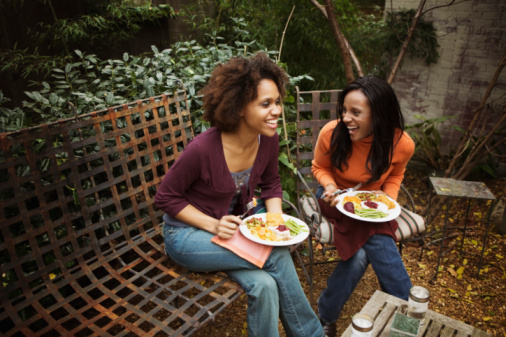
Veganism is not a dietary lifestyle reserved for privileged white America and too many of us buy into this way of thinking and it is causing grave (pun intended) circumstances. I know that one fear that tends to plague women of color when considering vegan living is losing “too much” weight and not being appealing to men of color. This is where priorities to need to be put in the proper place.
If you lose weight due to dietary changes and you are doing it healthfully, then what you lose you are meant to lose period. If you are incorporating physical fitness along with your diet, then your body will form into the way it was designed to be and what’s more appealing than a physically active woman that eats healthfully?
When trying anything new, you will inevitably have questions and some fears about the new territory, but there are so many resources and communities of color that are embracing the vegan diet that can help you along the way. I endured a lot of trial and error on my journey, but it continues to be well worth it. I can honestly say that I enjoy food more now than I ever did prior to becoming vegan. If you are considering veganism, I challenge you to start with small changes and take each day as it comes. Pick up a piece of fruit when craving something sweet, drink water instead of juice, and buy a couple of cans of black beans to make with rice for dinner. These are all easy, affordable and accessible vegan choices.
With proper planning and preparation, you can be successful and will definitely be satisfied and food will take on a new meaning for you.
I left the shelter that day energized and inspired by the engaging conversation I had with the ladies about health and veganism. I know there are many women of color out there that want better for themselves and their families and veganism can be the answer for many. Life and food is what you make it. It can be dead, or it can be vibrant and full of flavor. It’s up to you to decide.
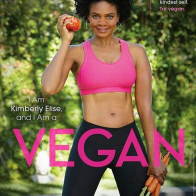
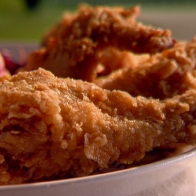
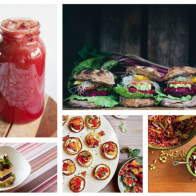




I am very interested in being vegan, I fact I have made major changes. I no longer drink milk, only eat seafood, have drastically increased my green leafy vegetable intake, etc. I love cheese, real cheese. What can u do about that, and is it ok to eat seafood? I know that us not a vegan but, it’s better than most… Right? Lol, but any help that you could offer would be appreciated.
A. Breeze Harper is a scholar who writes on the intersection of race and veganism. I would highly recommend her book “Sistah Vegan” which, unlike other vegan literature that is situated in white-only contexts, speaks specifically to black women.
I was a vegetarian for 3 years who later decided to resume eating meat and fish. I can say quite firmly that was the most influential time in my life in terms of diet and lifestyle and I would highly recommend to anyone to reevaluate their relationship with meat. During and after vegetarianism, I have learned so much about nutrition, ethics, seasonality of food, and value. I don’t feel one has to be vegan, vegetarian, or omnivorous for the best life, but I do feel that we need to be connected to where it comes from, what we’re doing to the environment, ourselves, and the things we eat whether it animal, vegetable, or mineral. As a people, we shouldn’t be eating 2 – 3lbs of meat daily. Meat shouldn’t be super cheap because of the mass killing in industrialized processing. Alternatively, we shouldn’t be eating tomatoes in November (out of season, read not good for you) shipped from Brazil (massive carbon footprint, read shipped, less nutrients, and bad for the environment on par with the greenhouse gas emitting industrial cow you’re fighting against). All of our decisions have a massive impact on our health and the health of the eco-system (plants, soil, animals, etc.) and we should be working harder to eat things closer to where we live, at the right time of year, and with respect to our bodies, our environment, and our earth. No I’m seriously not a hippie. I don’t feel one has to go to the extreme of being a vegan unless it’s really one one wants to do, but everyone needs to take a step back and acknowledge that eating one week’s worth of meat (1lb) in one meal is stupid-retarded and needs to stop!
This a great article. I’m totally invested in my health and wellness through a vegan lifestyle. When is this site going to put up a how to? 😉
This article is very insightful and encouraging to live a more healthy lifestyle. Ever since last summer I have been transitioning to live more healthy by slowly cutting away eating meat, doing more outdoor activities such as jogging and doing nature walks, pilates & yoga and eating more whole wheat, veggies, fruits and organic foods. However, this article failed to talk about how expensive it is to eat healthy and how resources and education may prevent people from eating healthy.
I was raised Adventist, so with that religion we have a strict way of eating, but I am in college, though I am fortunate to work and have a car and shop at quality supermakets and natural food store, not everyone does. Eating healthy, not everyone knows how to, hell, I am still learning how to, then its expensive, buying new foods to add to your new way of life adds up, cooking, I love to do but sometime I have to go to the cafe on my campus which throws off my diet last, access to quality food stores, its great to want to eat healthy but if you don’t have the right places to go to or way to get there it can be a challenge.
So as long as I work and continue to educate myself about eating healthy and have access to quality food stores I am great. By the time I am 40 I want to be a vegan. (thats like 20 years from now)
Well written article. I adopted a veg lifestyle about 8 years ago and I can’t say enough about how eating clean has changed my life. A healthy diet is not only important to physical health but also mental health. I suffered with depression and low energy for so many years and even gave medication a brief (2 days) try. I connected diet and physical fitness to my poor mood and low energy. It is a struggle to get other women of color to see the connection and how important it is to long term health. Anyway, I will pass this article along to friends and family and hope the message is taken in.